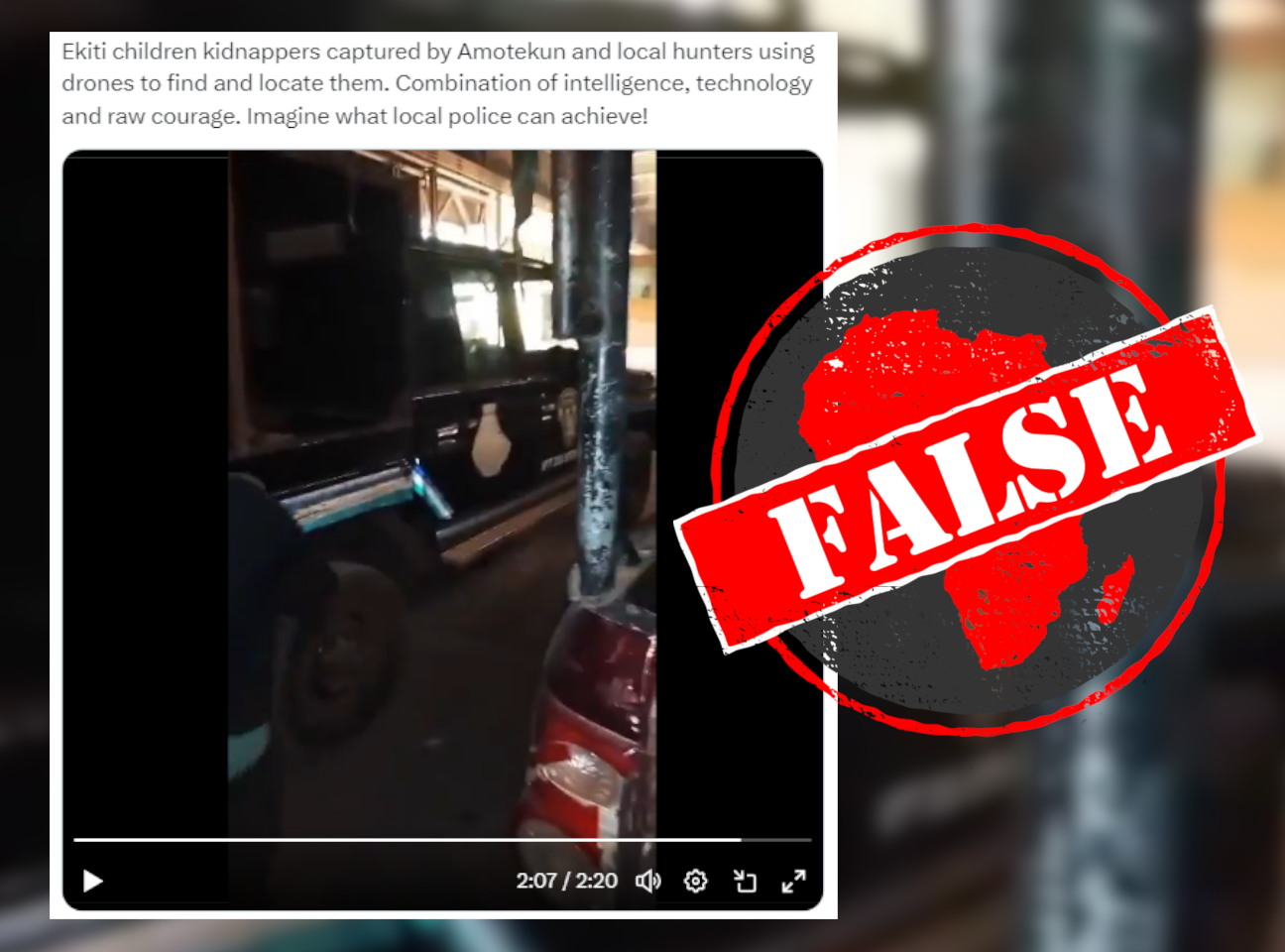IN SHORT: A video circulating on social media shows Amotekun members arresting suspected armed robbers in Osun state in Nigeria. It does not show them capturing armed men who kidnapped pupils and teachers in Ekiti state.
Warning: This report links to a graphic and upsetting video.
On 29 January 2024, armed men ambushed a school bus carrying pupils and teachers of the Apostolic Faith Montessori School in Ekiti state in southwestern Nigeria.
They kidnapped the group and demanded N100 million (about US$80,000) for their release. The pupils and teachers were released on 4 February, while the bus driver was reportedly killed by the kidnappers.
Several posts on Facebook later claimed that the kidnappers had been captured by local hunters and Amotekun, a security group formed in 2019 to tackle insecurity in southwest Nigeria.
The posts are accompanied by a video showing seriously injured men being loaded into the back of a pickup truck.
One such post on X (formerly Twitter), dated 3 February 2024, has been viewed over 741,000 times.
It is captioned: “Ekiti children kidnappers captured by Amotekun and local hunters using drones to find and locate them. Combination of intelligence, technology and raw courage. Imagine what local police can achieve!”
The same video and claim can be found on Facebook here, here, here, here, here, here, here, here, here, here and here.
But does the video show the kidnappers after they have been captured by Amotekun members and “local hunters”? We checked.

Video shows different incident in another state
According to the Nigerian newspaper Punch, the families of the abductees paid the kidnappers N15 million and gave them other items, including fried rice and malt drinks, for the release of their loved ones.
Ekiti state police spokesperson Sunday Abutu confirmed that all the victims had been rescued on 4 February, but said the driver was suspected to have been killed by the kidnappers.
The release of the abductees was widely reported in the media, but there has been no news that the kidnappers have been attacked or arrested. We would expect news reports if this were the case.
We took a closer look at the video and noticed that “Amotekun” was written on the car door.
We looked into the activities of the security team and found that they had clashed with suspected armed robbers at Dangote Integrated Steel Rolling Mills in Osun state, a two-and-a-half hour drive from Ekiti.
A news report on 17 January about the incident includes a screenshot of the video circulating on social media. We also found other media reports of the same incident.
Misinformation about security incidents can cause unnecessary panic and fear among the public. Through fact-checking, Africa Check seeks to ensure that the narrative surrounding security incidents remains factual.
Republish our content for free
For publishers: what to do if your post is rated false
A fact-checker has rated your Facebook or Instagram post as “false”, “altered”, “partly false” or “missing context”. This could have serious consequences. What do you do?
Click on our guide for the steps you should follow.
Publishers guideAfrica Check teams up with Facebook
Africa Check is a partner in Meta's third-party fact-checking programme to help stop the spread of false information on social media.
The content we rate as “false” will be downgraded on Facebook and Instagram. This means fewer people will see it.
You can also help identify false information on Facebook. This guide explains how.


Add new comment